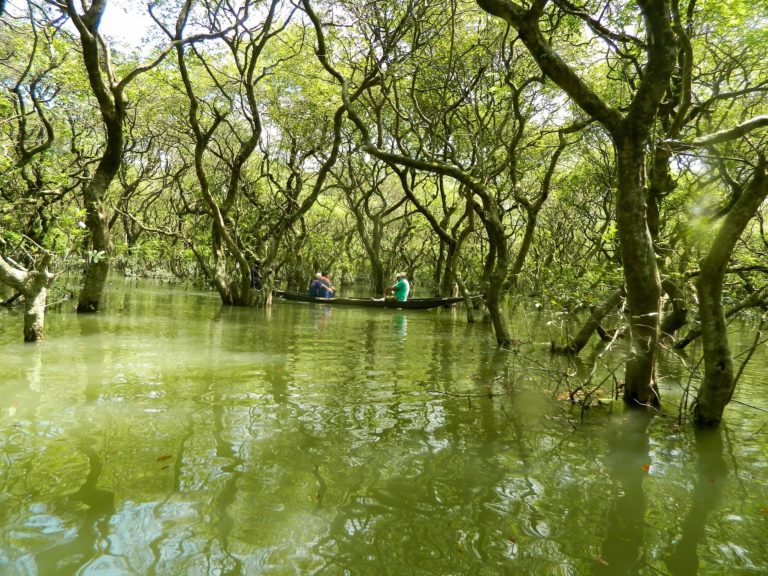Bangladesh’s Ratargul Swamp Forest Poisoned in Act of Environmental Sabotage
By: Waterkeeper Alliance

FOR IMMEDIATE RELEASE
Sylhet, Bangladesh — October 26, 2015 — Unknown culprits have poisoned a prominent canal in the Ratargul Swamp Forest in Gowainghat, Sylhet, Bangladesh. The 500hectare forest is one of 22 remaining freshwater mangrove swamps in the world, the only one in the nation, and is naturally conserved under the Government of Bangladesh’s Forest Department. Most of the aquatic inhabitants of the Khoiyar Canal have been killed, including a large endangered and rare fish population. The canal also serves as a lucrative fishing locale. The sale of the canal’s fish supply by corrupt government officials to large sellers has long been a practice despite its illegality. The poisoned fish were then gathered by villagers and sold in local markets. The potentially adverse health effects of consumption of contaminated fish cannot be determined until the toxic agent is identified. Public health and damage to the ecosystem, which locals depend on for their livelihood, are of critical concern.
To Surma River Waterkeeper Abdul Karim Kim, of Waterkeeper Alliance, the poisoning appears to be a show of power by government officials in response to recent civil protest against government construction projects on conservation land. Strife over the building of a 5story watchtower, roads, culverts and fencing, has inspired petitions and demonstrations including human chains and hunger strikes. In 2012, the people demanded government protection of Ratargul Swamp Forest for tourism and $10 million was set aside for the endeavor. However, much of the unrest stems from the use of these funds for the very development projects that are causing the destruction of this fragile national forest.
The Forest Department has refused to speak out on the poisoning incident even in the face of national news coverage. Waterkeepers Bangladesh including Buriganga Riverkeeper and Khowai River Waterkeeper are developing a public interest litigation case that could pressure the Bangladeshi government to conduct an investigation. They are calling for an assessment of damage to the Ratargul Swamp Forest, demanding the government disclose what kind of poison was used and that the perpetrators be brought to justice. The Waterkeepers are hopeful that scrutiny from the international community will push officials to act.
Contact:
Tina Posterli, Waterkeeper Alliance, 516-526-9371, tposterli@waterkeeper.org